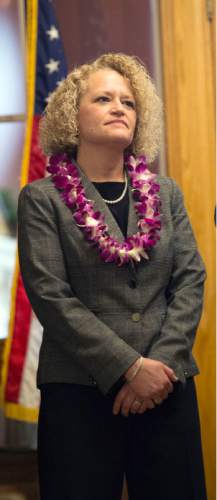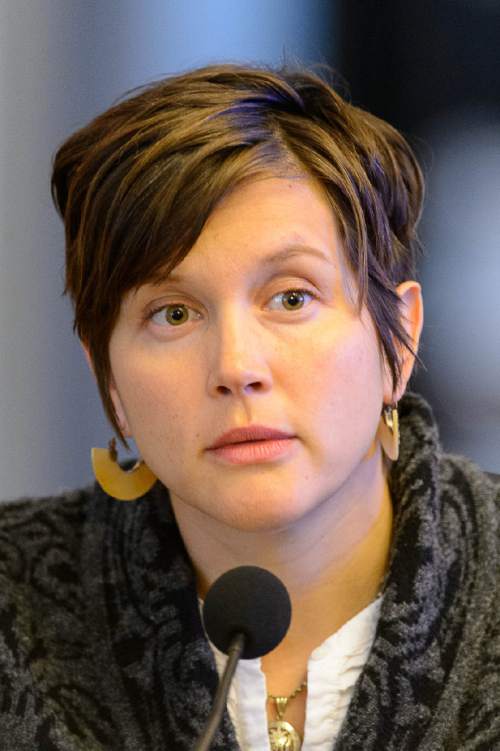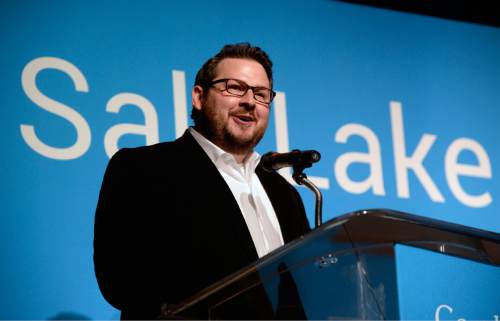This is an archived article that was published on sltrib.com in 2016, and information in the article may be outdated. It is provided only for personal research purposes and may not be reprinted.
Google Fiber officials said Thursday the company will open a storefront in Trolley Square — one year after it announced it would build a high-speed computer network in the capital city.
In the interim, Google Fiber has been laying cable and expects to have some service available by the end of the year, according to Devin Baer, with Google Utah.
At an announcement ceremony, Mayor Jackie Biskupski said the fiber-optic network would play a significant role in economic development.
"This is a phenomenal project," she said. "Thank you, Google, for being part of Salt Lake City.
Although the fiber network will be a boon to business, the mayor said it also will improve Internet service to households, libraries and community centers.
Biskupski also noted that Google and Salt Lake City will emphasize "digital inclusion, digital literacy and accessibility."
Some low-income households in Salt Lake City lack Internet access, let alone high-speed capability. The connectivity divide is a reality throughout the country.
Google Fiber's model for its network build-out is to provide service in neighborhoods that demonstrate demand by the number of households that sign up before cable installation. The percentage of sign-ups necessary varies on the density of the area.
Google Fiber purchased iProvo, the Utah County city's troubled fiber network, and began operations there in January 2014. But Kansas City, Mo., was the first municipality to get a start-from-scratch Google Fiber network.
As a result, competitors there have increased broadband speeds and lowered prices.
Google's 1-gigabit Internet service is $70 per month in Provo, Kansas City and Austin, Texas. With a TV package in those cities, the monthly fee is $130.
Google offers a free slower-speed Internet service for seven years with the price of hookup — $300.
Although the $300 hookup fee may be paid in $25 installments over 12 months, it only can be purchased by property owners — not renters.
According to a Wall Street Journal survey in 2015, only 15 percent of households in Kansas City's low-income neighborhoods opted for Google's service. By contrast, more than 50 percent of households in upper-income neighborhoods signed up for the 1-gigabit package.
Michael Liimatta, formerly of Connecting for Good, a Kansas City, Mo., nonprofit that seeks to bring Internet to low-income homes, said low-income residents don't need 1-gigabit service. What they do require, he explained, is a computer, knowledge and an Internet provider.
Salt Lake City Councilwoman Erin Mendenhall said she doesn't believe the digital divide will be bridged here until the municipality takes on some of the burden to ensure all households are served.
She added that the Internet is now a necessity for all Americans.
"The Internet is not just about entertainment," she said. "It's about access to education, health care and business."







